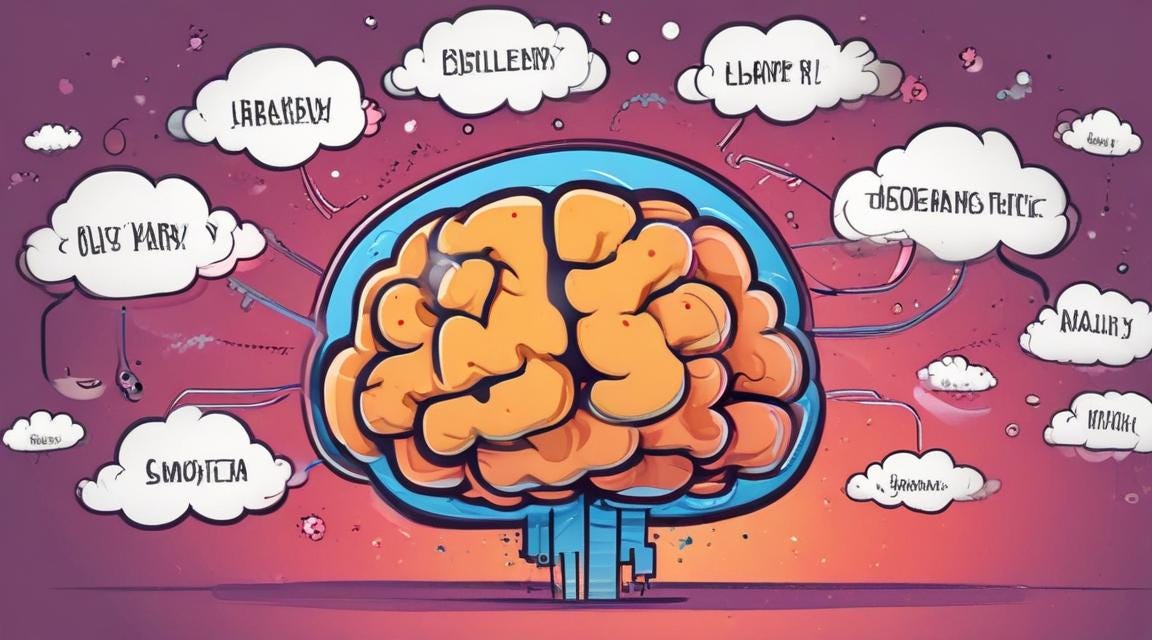Brain: I Label Fast (& Accurate)
I was listening to “Ask” by Jeff Wetzler's audiobook at the same period of time while writing this issue. In the book, I came across an interesting point that Jeff Wetzler made. Our brain tends to label things very quickly. This is an interesting point, given my fascination with cognitive neuroscience and artificial intelligence. So I wanted to write down my thoughts on it and also share them with my subscribers, you, and hope that it helps you. And yes, I strongly recommend the book and in fact, I am considering getting a physical copy to keep it around for reference. :)
Our brain is a result of millions of years of evolution, and it is layered if you study the physical brain where we start with the reptilian brain (basal ganglia), followed by the mammalian brain (limbic system), and onto the outer layer which is the neocortex. At the basic foundation, our earliest ancestors will be picking up knowledge and information about where the food (trees & animals) and water (landmarks) are. There is a good chance that they will have to “label” them as they access these unfamiliar entities at the start. Why label? So that they do not have to spend too much energy to quickly access the information in their brain. Labelling creates heuristics that can help reduce the consumption of energy by the brain, in a period where energy (food) is hard to come by.
Labelling, its very action will help retrieval by shortening the access time to knowledge later. Back then it may have been very simple with just labeling food and way to water, but as our ancestors gather in bigger groups, there might be a need for more labels, as they move from their survival needs to social needs.
Now as more and more things need labeling and get more complex and varied, there will be a bigger variety of labels. The brain then needs to go overdrive to start labeling faster, with the first label on whether it stays in the working memory, followed by moving to episodic or the likes of long-term memory.
Fast & Accurate(?)
Ok, I admit that for the above there is a bit of speculation on my part given what I have read thus far. But we do “label” stuff very quickly, that is for sure. Remember the statement, “First Impression Counts”.
Now I want to bring this to our cognition and learning. The person who can label fast and accurately will be able to retrieve the knowledge and information quickly and be able to apply them effectively. But to expect anyone to be able to label fast AND accurately might be a tall order because even natural-born talents also need time to nurture and bring out their full potential to reality. So the next question to answer is, while the brain labels fast…is there a way for us to increase its accuracy?
The key to higher accuracy in labeling may seem counter-intuitive here but my opinion is, to keep an open mind, learn from mistakes, and keep learning.
Keeping an Open Mind
While I believe that as we learn more about the environment, social, and physical, we will label better, we have to note that we will make mistakes too and always keep an open mind that we can make mistakes and be prepared to change that label especially when there is mounting evidence otherwise. The stubborn are the ones who do not bother to change that label when the mountain of evidence says otherwise.
Learn from Mistakes
After keeping an open mind, the next step to being able to label accurately is learning from our labeling mistakes and understanding why we labeled them wrongly. Mistakes are opportunities for us to learn something about ourselves. Hopefully, we get better at labeling going forward and avoid costly mistakes.
Keep Learning
As we keep learning, we will get better at our labeling since we get to know more and also in better detail. Keep learning also increases our brain bandwidth or our cognitive capacity to process as we exercise our brains, and strengthen the relevant connections in the brain (i.e. strengthen our understanding and retrieval of knowledge).
Conclusion
This statement “Our brain labels things fast.” resonated very well with me when it was mentioned and I was thinking about it the whole day on how the statement is useful in my personal learning. I do believe that our brain labels things pretty fast because we tend to pass judgment quickly. While label accuracy is much to be desired I do believe that we can improve on it and the spoils should go towards those that have their labels highly accurate. But to be highly accurate is a tall order, so how can we improve on it and thus birth the three points I made above .
What are your thoughts on this? Will be keen to hear it, especially your thoughts on why our brains label or pass judgment very quickly. :)
Consider supporting my work! You can make a “book” donation and drop me some wisdom! :)
Book: Ask by Jeff Wetzler



Labelling as meta-data or labelling as the data that is eventually stored? That's the question I sometimes wonder. Is labelling about reductionism (i.e. reducing the dataset for storage in our probably limited brain) or labelling a meta-data tool for extraction? Hmm...